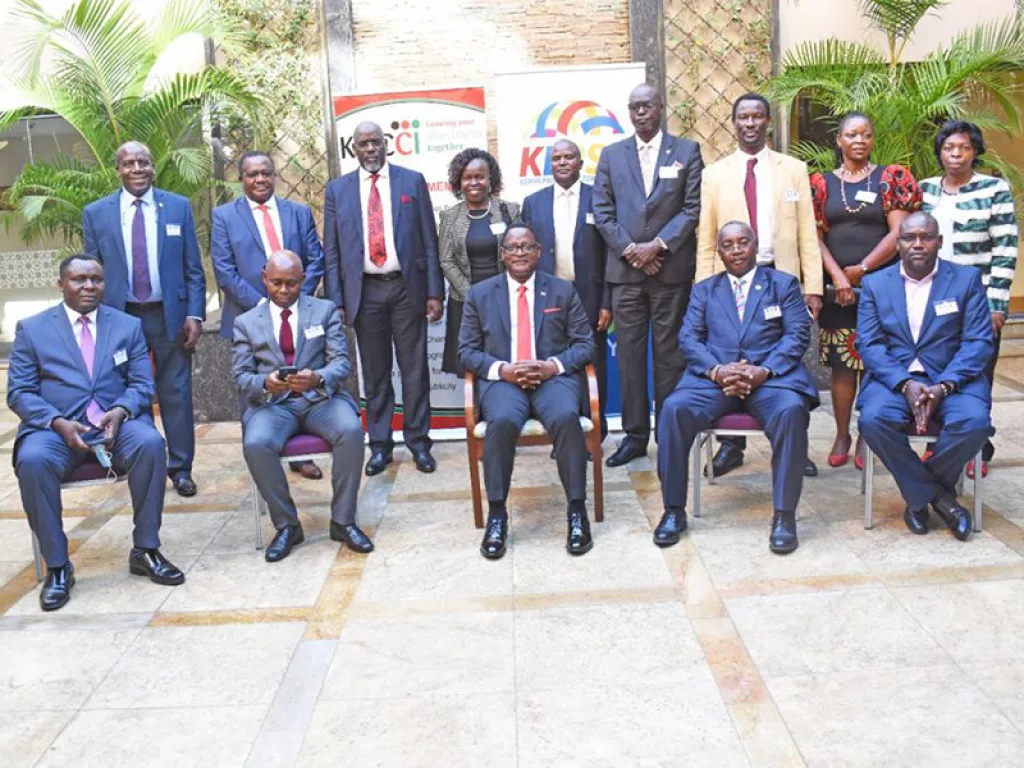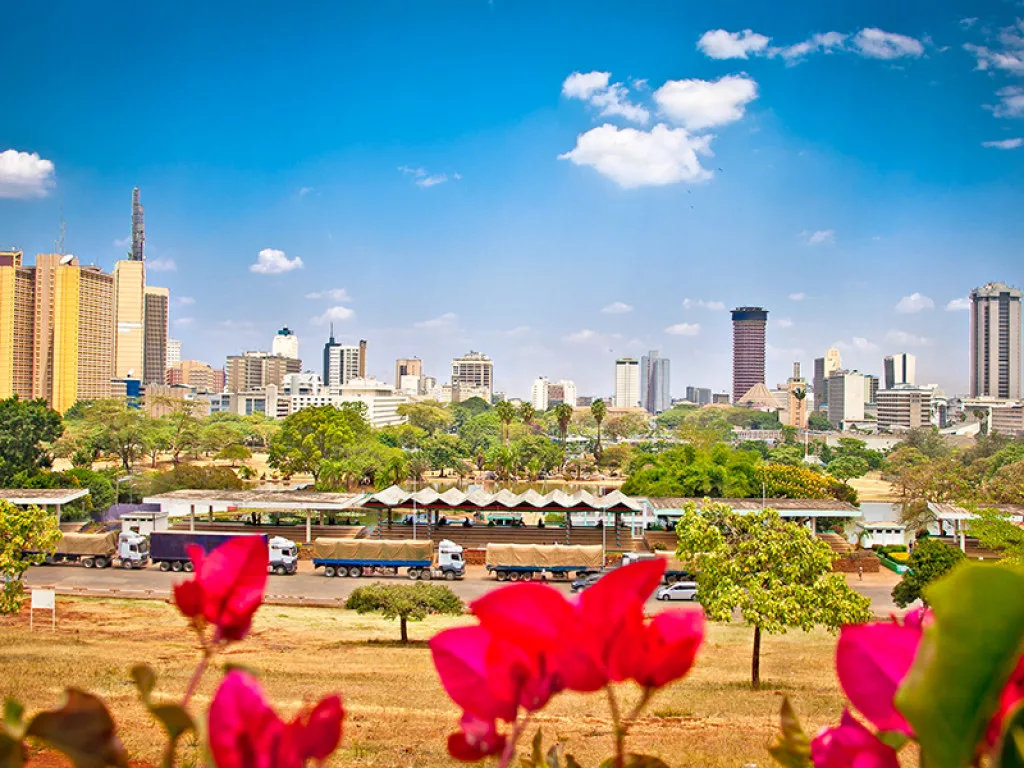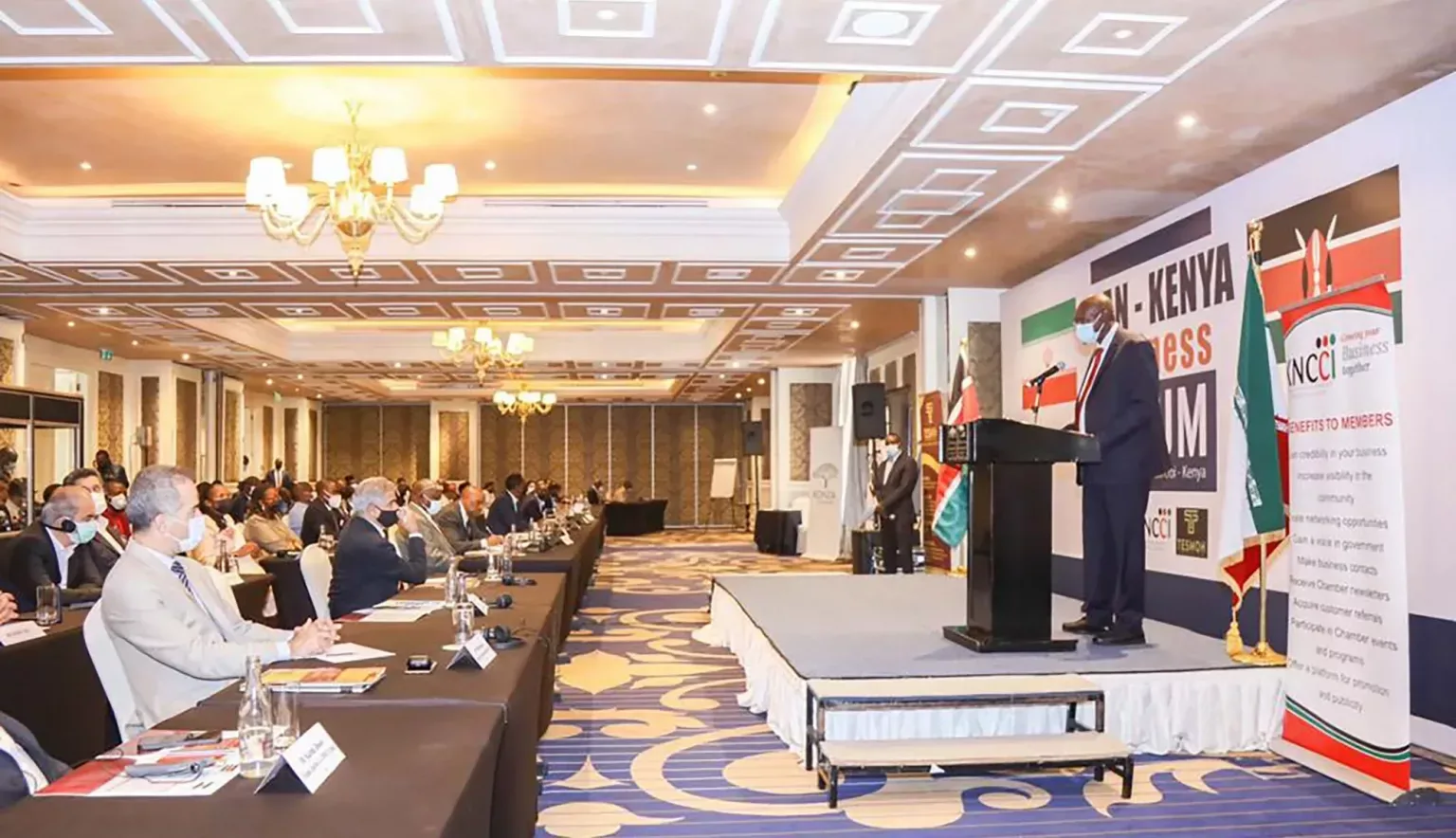We talk to the Kenya National Chamber of Commerce and Industry about the state of the Kenyan economy as it pursues recovery and sustainability in the wake of the COVID-19 pandemic.
INTRODUCTION
Third only to Nigeria and South Africa, Kenya boasts one of sub-Saharan Africa’s largest economies. Its national government is widely recognised for its investment-friendly outlook, regularly implementing reforms to streamline both foreign and local investments.
Since gaining independence in 1963, Kenya’s industrialisation has faced impediments such as limited domestic purchasing power, reduced government budgets, issues in mismanagement and poor infrastructure. A favourable balance of trade has been difficult for the country to navigate in the face of accelerated population growth, unemployment levels, and widespread poverty in certain areas.
Fortunately, in the past few decades, the country’s economy has been shaped by dynamic tailwinds including recovery within national agriculture, explosive growth in telecommunications, and significant developments across both the transport and construction sectors. Today, Kenya’s young working population has become synonymous with technology and innovation, causing exciting ripples across the business community.
Despite recent setbacks, including the economic headwinds of the COVID-19 pandemic, Kenya’s status as a conducive centre for business is improving. Indeed, last year the country was voted 56th in the world based on the World Bank’s ease of doing business rating – a climb from its position in 61st place in 2019.
Nevertheless, Kenya’s business community is now seeking greater resilience and a wider reach across the global market, to secure sustainability for the future.


Q&A WITH RICHARD NGATIA, KENYA NATIONAL CHAMBER OF COMMERCE & INDUSTRY (KNCCI)
President of the Kenya National Chamber of Commerce and Industry (KNCCI), Richard Ngatia, unpacks the organisation’s vision of building a vibrant and prosperous business community for the nation,
As a not-for-profit private company, KNCCI operates as the umbrella body to unite Kenya’s enterprises by championing an enabling business environment that will allow trade to prosper. We discuss how the chamber has progressed since its founding in 1965, and the long journey ahead in establishing economic recovery.
Can you talk me through the origins of KNCCI, how it came about, and its initial vision?
Richard Ngatia, KNCCI Chamber President (RN): For over 400 years, the Chambers of Commerce have been a necessary and expendable intermediary between government, business and the general public in a bid to foster good relations that allow trade to prosper.
KNCCI was established in 1965 after the amalgamation of the three existing Chambers of Commerce at the time: the Asian, African, and European chambers mandated to protect and develop the interests of the business community.
In 2014, the East Africa Chamber of Commerce, Industry and Agriculture (EACCIA), with the President of the Republic of Kenya, H.E Uhuru Kenyatta, as the patron, relaunched the Kenya Chamber with a broader and focused business perspective.
KNCCI is registered as a not-for-profit private company limited by guarantee under the Companies Act Chapter 486 of the laws of Kenya. Before the promulgation of the Kenyan Constitution in August 2010, the KNCCI had its main operations at the head office in Nairobi with regional offices in major counties in Kenya. However, after the promulgation of the constitution, the Chamber amended the legal instrument to establish a national office and County Chamber offices in all the 47 counties.
KNCCI is a membership-based Trade Support Institution (TSI) working to protect the commercial and industrial interests of the Kenyan business community. KNCCI advocates for the creation of a favourable commercial, trade and investment environment that supports enterprise expansion. The membership of KNCCI constitutes small micro enterprises (SMEs), medium and large enterprises.
“KNCCI envisions to create a vibrant and prosperous business community with a mission to facilitate and promote a sustainable business environment for economic growth and prosperity”
Richard Ngatia, KNCCI Chamber President
Since inception, how has the Kenya National Chamber of Commerce and Industry developed and progressed in terms of its key objectives and the messages it tries to get across?
RN: While the key objectives of all chambers have remained the same (protecting and developing the interests of the business community), the scope and mode of discharging its mandate has immensely transformed.
The Chamber is now present in the 47 counties through the various chapters to mirror the government’s devolved system. KNCCI also operates in partnership with 177 international Chambers of Commerce.
In partnership with the government, the Chamber issues the Certificate of Origin (COO) for its members. Our bouquet of services has grown from SME development to include aspects such as hosting incubation and innovation platforms, and SME hubs, amongst others.


What do you find most exciting about working in Kenya’s industrial sector?
RN: Being in the midst of promising industrialisation, within which Kenya’s industrial segment constitutes one of the most optimistic. In addition, the growing appetite for partnership globally is an aspect to relish. The growing confidence in pan-Africanisation through AfCFTA for example, presents new market frontiers and an exciting outlook from an African perspective.
On the flip side, what are its biggest challenges?
RN: The biggest challenge is the readiness for trade to thrive through instances of uncertainty and disruptions. The readiness of our SMEs and the overall business enterprise in Kenya was put to the test during the COVID-19 pandemic. The closure and strain experienced by businesses is testament to the need for resilient and sustainable commercial frameworks.
How have Kenyan industries navigated the COVID-19 pandemic?
RN: The year 2020 came with challenges not only for upcoming businesses but also existing ones. Businesses were forced to adopt new survival strategies in the midst of the COVID-19 pandemic. With restrictions on physical contact and interaction, businesses had to shift to online transactions, which came with cost implications. A majority of businesses collapsed as a result of the pandemic and a lack of finances to shift to new marketing and business strategies, which in turn affected our economy.
There are efforts from different players to support the trade industry in Kenya through financing and capacity building. Kenyan enterprises have been impressive in their capacity to rebound – a true testament to the tenacity of the Kenyan spirit. This was achieved through government fiscal ease (through tax reductions), and the waiver of stringent commercial measures (e.g., bank transactions, Credit Reference Bureau (CRB) terms) that were introduced to cushion businesses.
This is in addition to businesses’ own creativity as they sought to comply with the guidelines and requirements to operate. Such examples include maintaining space and sanitation in business premises and the deployment of digital solutions such as insurance stickers through online platforms, cashless transactions, and meetings.
What trends are currently transforming the sector? How are you responding to them?
RN: The journey towards digital transformation is ongoing and this is a real build-up to achieving true e-commerce readiness.
Kenya is also reaping the demographic dividend thanks to the growing ‘working population’ and this places the country and the continent at large in a unique position globally in terms of industrial readiness and income growth.
However, there is also the need to incorporate partnerships and government reforms to generate strategic alliances with local traders in order to;
- Unleash innovation that drives job creation.
- Develop innovation hubs that draw foreign investment and talent to the country for economic opportunities.
- Expand access to finance, education, and healthcare.
- Introduce cutting-edge digital technologies and novel business models that benefit the firm.



Have KNCCI got any projects in the pipeline you wish to highlight?
RN: The existing business environment in our country is not one that we can proudly celebrate and say it is perfect. Much must be done if we are to reach a satisfactory level. Our business community needs to be exposed to the outside world and there is also the need for ease of access to information to enhance business development.
As a Chamber, we have done quite a lot to support businesses. We have been able to organise foreign trade missions for our members and this has been a learning expedition to them. In July this year, the Chamber President led a delegation of 76 businesspeople to Egypt where a respectable number of business deals were made.
With the ongoing Expo2020 Dubai, the chamber has in-tray activities that can benefit the members. Our first participation at the Expo was the Global Business Forum that took place on 13th and 14th of July 2021 where we mobilised our members to participate.
In partnership with the government and other private organisations, we have been able to organise business forums within the country for B2B and B2G engagements. The most recent include Kenya-Iran, Kenya-Estonia and Kenya- France business forums.
Despite the milestones in our trade sector, additional forces are welcomed to enable our businesses to thrive. Therefore, there is a need for:
- Development of Chamber Industrial Park.
- Development of trade centre and conference facilities.
- Establishment of financial hub.
- Establishment of Media Centre (TV and Radio Station).
- Establishment of a regional ICC Centre/Innovation hub ongoing.
- Establishment of Chamber Business School.
How do you see the Kenya National Chamber of Commerce and Industry developing over the next five years?
RN: While much progress has been witnessed at the Chamber, there is immense potential that remains unharnessed. The next five years will build on the momentum gained to stamp the Chamber’s position in championing member interest. In the information age that we are in, the Chamber is on the path to becoming a true data repository, furnishing members with duly researched and analysed information.































